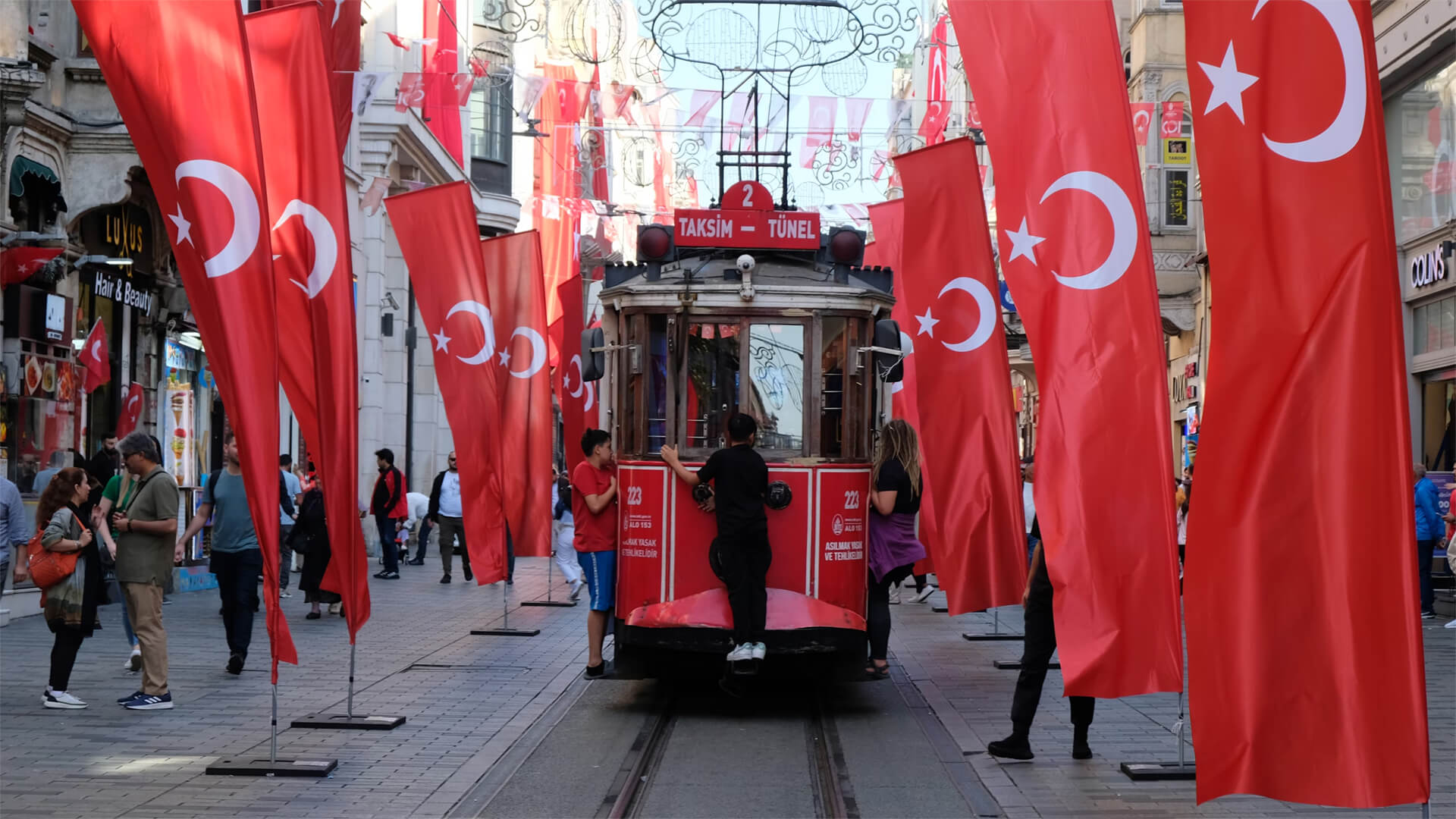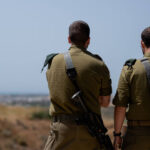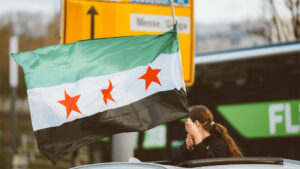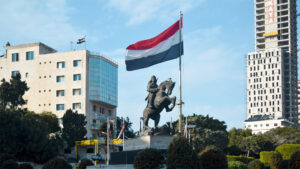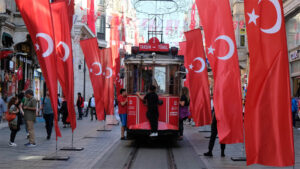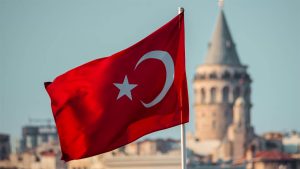The world is a little healthier & more hopeful thanks to you.
In partnership with our friends over at MedShare, we wanted to say thank you for all the help you’ve provided this year. Whether you donated directly, joined the Patreon page during one of our donation drives, or were simply engaging with our content along the way…you have helped make a difference.
Please click here to learn more about where your donations went and how they were used
The fall of the Assad regime has left a fragmented and chaotic landscape in its wake. The punchline is that Syria’s future does not lie within its borders; a regional power from outside will need to step in and help.
Syria is highly fragmented and lacks a dominant force or unifying government. Between the Alawites, Christians, Kurds, ISIS, and multiple Arab factions, there’s not much cohesion going on. And then you mix in some foreign entities protecting their interests, like the US running some short-term operations in the region and the Israelis striking Syria’s military assets to prevent any future threat from a new regime.
Turkey is the power we want to watch most closely. Given their close ties to Syria and support for various Arab factions, deeper involvement could influence a settlement. Without Turkey as a security guarantor, Syria risks remaining a stateless zone; with all the different groups in Syria, fighting will only get worse from here (and it could get really ugly).
Here at Zeihan on Geopolitics, our chosen charity partner is MedShare. They provide emergency medical services to communities in need, with a very heavy emphasis on locations facing acute crises. Medshare operates right in the thick of it, so we can be sure that every cent of our donation is not simply going directly to where help is needed most, but our donations serve as a force multiplier for a system already in existence.
For those who would like to donate directly to MedShare or to learn more about their efforts, you can click this link.
Transcript
Hey, everybody. Peter Zeihan here. Coming to you from the slopes of Mount Taranaki in outside of Plymouth, New Zealand. Plymouth is right over there somewhere. Anyway, today we’re going to continue talking about the consequences of the fall of the Syrian government specifically. Now we’re going to talk about military operations that the Israelis and the Americans are carrying out.
The Americans are doing something that’s fairly short term and probably is going to be short lived. They’re taking advantage of the fact that the Russians have evacuated all of their aircraft back to Russia, so that they can now operate in a completely uncontested airspace, and they’re hitting the remnants of the Islamic State as hard as they possibly can everywhere they possibly can, because the Americans know that before long, regardless of who president is in the United States, they’re going to be closing down their operations in Syria.
Right now, there are fewer than a thousand operators, American special forces, primarily, that are operating in the country, primarily helping the Syrian Kurds defend themselves both against the regime, which is now defunct, against ISIS, which is still a problem, and against Turkey, who is an ally. In fact, the Turks have actually started carrying out more direct operations against the Syrian Kurds, who are actually under American protection.
So, you know, messy, messy, messy situation. Anyway, what the Americans are going to do is basically close this down because there is no way that there can be an American operation in Syria, if the Turks absolutely refuse to help with logistics. So probably with over the course of the next year, the Americans will be gone completely. The Israelis of course, are here for the long haul.
And their operation is designed to destroy all industrial level weaponry that the Syrians have. And they’ve already done just about a thousand airstrikes since the Assad government fell. They’ve destroyed the entire Syrian navy. They’ve destroyed the entire Syrian air Force, including transport aircraft. And now they’re going after ammo dumps whenever and wherever they can. And since Syria is a state that they’ve been in a de facto state of Cold War with, for decades, they’ve got very good Intel on where those depots are, and they’re hitting absolutely everything to make sure that whatever the next iteration of the Syrian government is, none of these weapons could ever be used against Israel.
It’s a policy that’s going to be very, very successful, but it will come at a cost. I mean, yes, by completely destroying all the military materiel, Syria won’t be able to field a traditional conventional force. And no, nothing shy of that could really threaten the Israelis. Anyway, the problem is what happens with political and economic consolidation in the post Assad environment in Syria.
Because if one side has a very significant military advantage, because they inherit the tanks and the jets and the missiles and the mortars and the artillery and all of that fun stuff, they could probably impose themselves as the de facto military authority over the bulk of the country in about a year. But if all of that equipment is gone, then we still just have a multi-sided civil war, just without the Syrian government being led by Assad.
And if you look at the situation where we are today, it’s already pretty shattered. You’ve got the Alawites who used to be part of the old regime, who have pretty much decamped. Damascus enforced probably 80% of them have already fled back to their homeland on the coast. You’ve got the Christians in the mountains to the east of that.
You’ve got the Druze in the south around their mountains. You’ve got different Arab groups. There’s one in Dara down in the south that is independent from the group that has done all the lightning attacks, and that group controls, Aleppo ham and Hamas. Hamas. Different thing. And then there’s a yet another group that is more directly sponsored by the Turkish government.
Not to be confused. The Pts, which is a group sponsored by the Turkish government, controls and Aleppo, and then you’ve got, of course, ISIS out in the desert and the Kurds in the northeast. So this is still a multivariate, multi-sided, very dynamic situation. And by removing the military equipment from the conversation, the Israelis are making damn sure that no one faction can easily take over.
So they’re going to try to do this diplomatically. The group, under Turkish sponsorship, with a little indirect nudging from the United States, is trying to get everybody around the table to have a common conversation about what a post-assad government might look like. The word elections is even being used, although I wouldn’t hold my breath. But this isn’t a rock.
This isn’t a country where there’s an American military occupation to force a security deal. There isn’t a huge amount of oil waiting to be produced to grease the wheels, to. So that you can have an economic angle to the unification. This is a knock down, drag out civil war between various factions that have never gotten along and have only been under the same flag because the Assad government was so brutal and tortured and killed anyone who said otherwise.
The chances of this working out well without a single security guarantor are thin. The one possible exception would be if the Turks get more directly involved after all, two of those Arab groups and the Arabs are 60, 65% of the population do ultimately get a lot of their equipment and funding from Turkey. So if the Turks wanted to impose something, then you’ve got 10% of the population that’s Christian, maybe 10 to 15%.
That’s Alawite, maybe another 10 to 15%. That’s Kurdish. Maybe, maybe, maybe, maybe, maybe with Turkish good offices and a lot of cash, they could form this into something that they could tolerate. More likely it’s going to be split apart and never really re congeal into a single state. And if you’re looking for a stateless space to generate something like Al-Qaeda or ISIS, it will be perfect.
Oh, yeah. One more thing. In a multi-sided civil war where no side has a technical, numerical or especially technological advantage over the others, once people realize they’re in kind of a stalemate, they start going after each other’s civilian populations and infrastructure. And this is in a country that’s already been in a civil war for over a decade, already has probably a half 1 million to 1 million dead, and already has about one third of its population displaced.
The Turks are going to be looking to repatriate many of the refugees that they’re hosting. That’s at least a couple million people. And so when sides start to decide to go after the people, the potential for just gross damage here is immense. Keep in mind that Syria is desert to semi-arid. And so when you start going after the civilian infrastructure, especially things like power and water, you can generate a situation where a lot of people die very, very quickly.
Such as we saw with the Russian siege of Aleppo a few years ago. So there’s not a lot here to look forward to. If, the Turks cannot find a way to make this into a form that they find useful.

